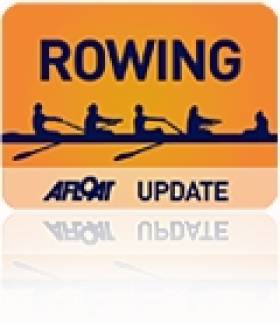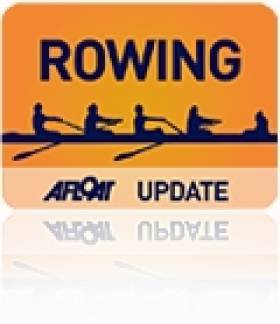Displaying items by tag: Hayes
Morris and Hayes Fourth at World University Rowing
#ROWING: The Ireland lightweight women’s double scull finished fourth at the World University Games in Gravelines in France today. Poland and Britain comfortably took the gold and silver medals, while Ruth Morris and Orla Hayes pressurised Mexico, who held third. However, the Mexicans held on to take bronze.
The men’s lightweight double of Shane O’Driscoll and Gary O’Donovan took sixth in their A Final.
World University Championships, Gravelines, France (Irish interest; selected results)
Men
Lightweight Double Sculls – A Final: 1 Britain 6:49.95, 2 Hungary 6:51.19, 3 France 6:54.01; 6 Ireland 7:06.62.
Single Sculls – B Final (Places 7 to 12): 3 Ireland (Hughes) 7:19.25.
Lightweight Single Sculls - B Final (Places 7 to 12): 3 Ireland (Beck) 7:29.08.
Women
Four – B Final (Places 7 to 10): 3 Ireland 7:27.46.
Lightweight Double Sculls – A Final: 1 Poland 7:43.43, 2 Britain 7:44.49, 3 Mexico 7:52.01; 4 Ireland 7:55.00.
Lightweight Single Sculls – B Final (Places 7 to 10): 4 Ireland (Dolan) 8:26.36.
Ireland A Finalists at World University Rowing Championships
#ROWING: Two Ireland crews will compete in A Finals at the World University Rowing Championships in Gravelines in France. Ireland’s lightweight double scull of Gary O’Donovan and Shane O’Driscoll finished third in their semi-final today out of an unfavourable lane two in difficult conditions. The women’s lightweight double of Ruth Morris and Orla Hayes also qualified for the A Final, winning their repechage. The three other Ireland crews will compete in B Finals tomorrow.
World University Championships, Gravelines, France. Day Two (Irish interest; selected results)
Men
Lightweight Double Sculls – Semi-Final Two (Three to A Final; rest to B Final): 1 Britain 7:11.03, 2 Germany 7:13.41, 3 Ireland (G O’Donovan, S O’Driscoll) 7:24.64.
Single Sculls – Repechage One (First Two to A Final; rest to B Final): 4 (T Hughes) 7:57.06.
Lightweight Single Sculls – Repechage Two (First Three to A/B Semi-Final; rest to C Final): 3 Ireland (C Beck) 8:15.18. Semi-Final One (Three to A Final; rest to B Final): 5 Beck 8:18.31.
Women
Four – Repechage (First Two to A Final; rest to B Final): 6 Ireland (N Long, O Finnegan, G Collins, S Dineen) 7:51.42.
Lightweight Double Sculls – Repechage One (First Two to A Final; rest to B Final): 1 Ireland (R Morris, O Hayes) 7:45.17, 2 Canada 7:46.81.
Lightweight Single Sculls – Repechage One (First Two to A Final; rest to B Final); 6 Ireland (Sinéad Dolan) 8:37.95.

























































